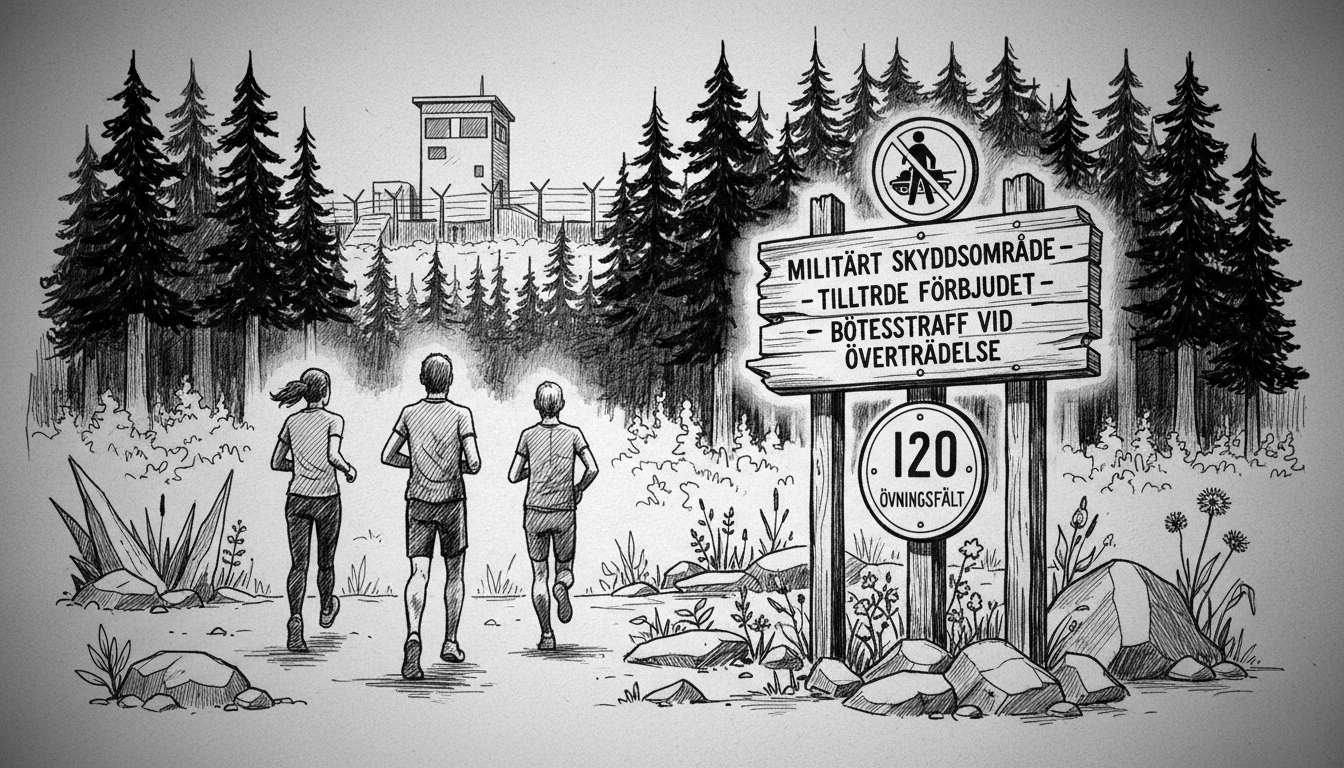Three Swedish runners learned the hard way that nature trails and military zones don't mix. Sebastian and his two friends received substantial fines after accidentally jogging through a restricted military training area in Umeå's popular I20 forest.
The I20 woodland sits just outside Umeå city center. Locals love it for hiking, running and cycling through its peaceful trails. But the same area regularly hosts Swedish military exercises, creating an unusual overlap between recreation and national security.
This case represents one of five similar incidents prosecuted this year alone at Umeå District Court. The runners received conditional sentences with significant financial penalties. Elias faced an 8,400 kronor fine while his companions received 15,000 and 9,300 kronor respectively.
Unauthorized entry into protected military facilities can carry prison time under Swedish law. The court showed leniency because the runners were clearly there for training. Their actions didn't cause serious consequences for military operations.
Elias acknowledged their mistake but considers the punishment excessive. 'It was an honest error and we admitted it,' he said in a statement. 'We did everything to help the investigation. I think it's too harsh—this should be treated as a minor offense.'
The runners won't appeal the verdict despite their objections. 'We need to consider what we'd gain from that,' Elias explained. 'It feels good to put this behind us.'
Earlier discussions revealed concerns about how the military marks restricted zones. The runners passed other military personnel who didn't stop them before military police made the arrest. 'We were wrong—we missed that it was closed off,' Elias acknowledged. 'But the military should review their procedures so this doesn't lead to a real accident.'
This situation highlights Sweden's changing security landscape. As the country strengthens its defenses following NATO membership, civilians encounter military presence more frequently. The I20 forest represents countless Swedish natural areas that serve dual purposes.
For international readers, this case offers insight into Sweden's legal balance between public access and security needs. The substantial fines show authorities take border security seriously, even when violations appear accidental.
Swedish nature conservation laws traditionally emphasize public access rights. The 'Allemansrätten' or freedom to roam allows extensive outdoor access. But military zones represent clear exceptions to these cherished rights.
Local runners now pay closer attention to posted warnings. The case serves as a cautionary tale about checking local restrictions before heading into Sweden's beautiful but sometimes restricted natural areas.

